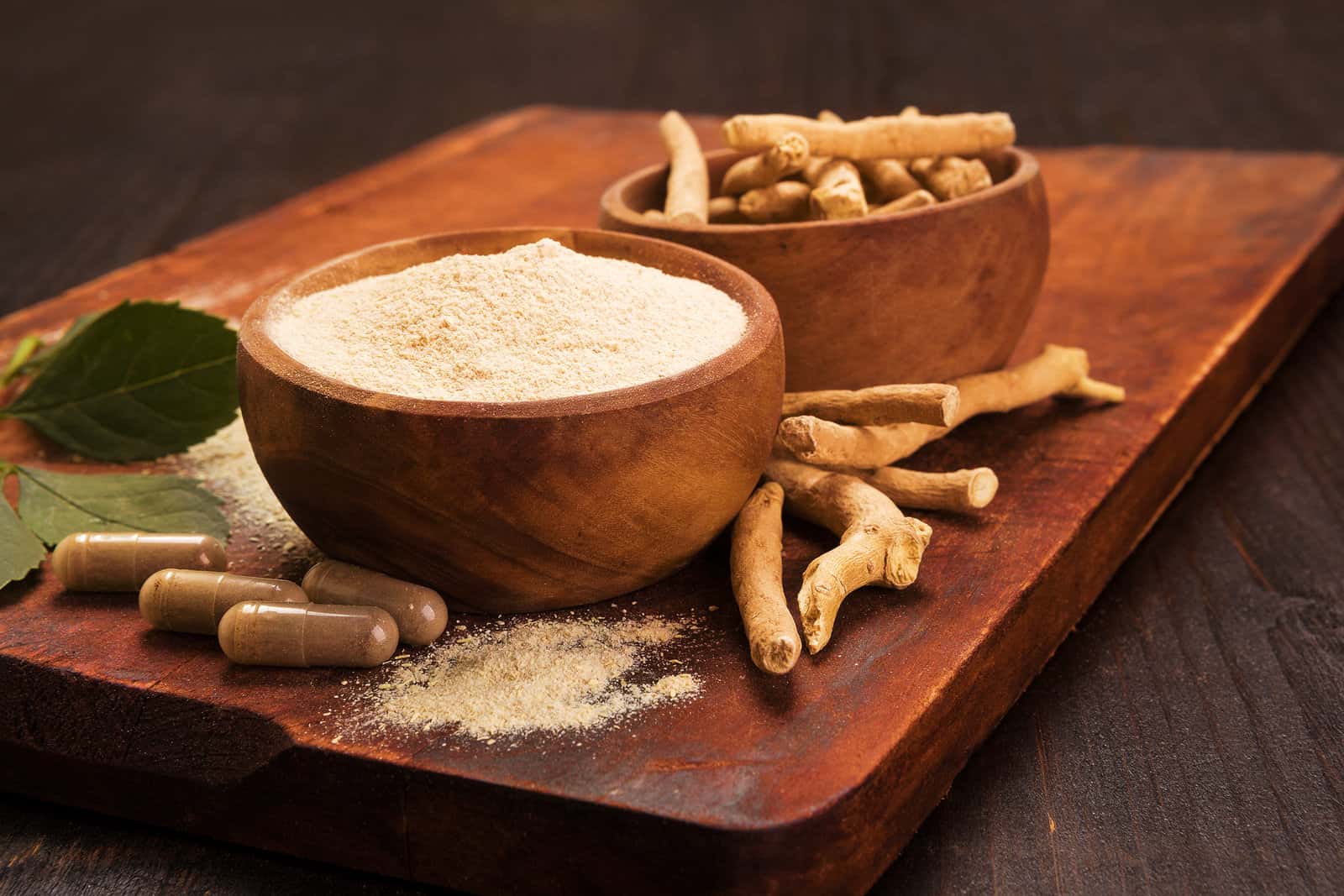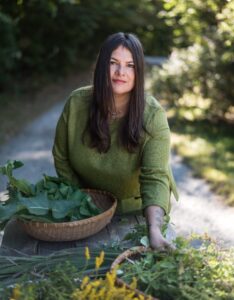
Rediscovering the Power of Medicinal Herbs
This week, two guests describe their work with the healing power of medicinal herbs. They draw upon family histories of herbalism along with their own studies of how to use botanical medicines.
You may want to listen through your local public radio station or get the live stream at 7 am EDT on your computer or smart phone (wunc.org). Here is a link so you can find which stations carry our broadcast. If you can’t listen to the broadcast, you may wish to hear the podcast later. You can subscribe through your favorite podcast provider, download the mp3 using the link at the bottom of the page, or listen to the stream on this post starting on March 18, 2023.
The Power of Medicinal Herbs:
For centuries, up until almost the middle of the 20th century, people relied primarily on plants for their medicines. The advent of synthetic drugs created and distributed by pharmaceutical companies helped pushed botanical medicines out of favor. Even though schools of medicine and pharmacy are no longer teaching their students how to use plants for healing, the plants have not lost their power. What should you know about them?
Warding Off Colds and Respiratory Infections:
If you come down with influenza, your doctor can prescribe an antiviral medicine to help speed healing. If your stuffy nose, sore throat and cough are caused by any of the hundreds of rhinoviruses, coronaviruses or enteroviruses that cause the “common cold,” your health care provider doesn’t have much to offer. There are some prescription medicines that can address individual symptoms, such as benzonatate or guaifenesin for cough. In the drugstore, you can buy multi-symptom cold remedies over the counter. But none of them will actually help you get better faster.
Medicinal Herbs Can Help:
One plant that helps speed recovery from respiratory infections is Andrographis paniculata. Most Americans are unfamiliar with this herbal medicine, but research has shown that it has antiviral and immune-modulating activity (Pharmaceuticals, Aug. 24, 2023). Herbalists also recommend it for digestive disorders, calling it the King of Bitters.
That name may offer a clue to why Andrographis is not very well known in the US. Americans are frequently reluctant to eat or drink things that taste bitter. Mimi Hernandez frequently pairs Andrographis with a far more pleasant-tasting and familiar herb, black elderberry. It too has been used to aid recovery from respiratory tract infections, although more and better clinical trials are needed (BMC Complementary Medicine and Therapies, April 7, 2021).
Is Goldenrod Just a Nuisance?
Many people blame their fall allergy symptoms on goldenrod (Solidago canadensis). According to Mimi Hernandez, that’s probably inaccurate. Allergies are more often reactions to other plants, possibly inconspicuous ones, that bloom at the same time. Goldenrod itself can be used topically to treat skin problems. It has a reputation for acting as an anti-inflammatory or diuretic when swallowed in a tincture or tea.
Other Medicinal Herbs Tackle Blood Pressure and Blood Sugar:
A couple of plants available in the US are more widely used and respected in Mexico and other countries. One of these is hibiscus, a beautiful red blossom that makes a tangy-tasting tea. In Mexico and other Spanish-speaking countries, this is called agua de jamaica. A few controlled trials have shown that Hibiscus sabdariffa lowers blood pressure in people with mild hypertension (Journal of Advanced Pharmaceutical Technology & Research, Jul-Sep 2019).
Prickly pear cactus, known as nopales, is used in Mexico to help people with blood sugar control. This might be chalked up as an old wives’ tale, but animal research confirms that polysaccharide compounds from the large flat cactus leaves can lower blood glucose, cholesterol and triglycerides (Journal of Ethnopharmacology, Aug. 10, 2023). Mimi Hernandez is enthusiastic about both these medicinal herbs. She has been working diligently to recapture the wisdom of our forebears regarding the power of healing plants.
Herbs in the Practice of Medicine:
Dr. Tieraona Low Dog was already an accomplished herbalist before she went to medical school. Her innate curiosity helped her turn the rigor she learned for medical research to the scientific study of botanical medicines. Dr. Low Dog is one of the best-informed experts we have ever interviewed on the scientific support for medicinal herbs, where it is present. She is also quick to tell us when that support is lacking.
We asked her about a favorite herb, and she chose a common backyard plant that is easy to grow and easy to use: thyme. One of the components of thyme, thymol, helps calm a cough, probably through its action on TRP channels (Respiratory Research, Feb. 8, 2023).
When Herbs May Be Better:
We asked Dr. Low Dog if there are times when herbs may be a more appropriate treatment than prescription drugs. There are certainly conditions for which lifestyle approaches, including but not limited to botanical medicines, are preferred. Occasional sleeping difficulties are among these. Dr. Low Dog often recommends Ashwagandha for those who are “tired but wired.”
Coughs due to colds are another. After all, OTC cough or cold remedies don’t work very well. Instead, she likes to suggest Andrographis or thyme tea and thyme syrup. Ginger tea can be especially helpful for people with chronic hives, a condition that is difficult to treat with conventional medicines. When medicinal herbs are used properly, they may be gentler than prescription products.
This Week’s Guests:
Mimi Hernandez:
Mimi Prunella Hernandez, MS, RH (AHG), is an internationally recognized clinical herbalist and ethnobotanist with a Master of Science in Herbal Medicine. She is a Registered Herbalist with the American Herbalists Guild, and has served as the Guild’s executive director for more than ten years. An award-winning student of the revered ethnobotanist James Duke, she has been practicing and teaching herbalism for more than two decades. Hernandez lives in the foothills near Asheville, North Carolina, where she stewards and advocates for native medicinal plants on the PonderLand Sanctuary.
She is the author of National Geographic Herbal: 100 Herbs from the World’s Healing Traditions
Her website is https://www.mimiprunellahernandez.com/

Mimi Hernandez, MS, RH, author of National Geographic Guide to Medicinal Herbs
Dr. Tieraona Low Dog:
Tieraona Low Dog, MD, is a founding member of the American Board of Physician Specialties, American Board of Integrative Medicine and the Academy of Women’s Health. She was elected Chair of the US Pharmacopeia Dietary Supplements/Botanicals Expert Committee and was appointed to the Scientific Advisory Council for the National Center for Complementary and Alternative Medicine. Her books include: Women’s Health in Complementary and Integrative Medicine; Life Is Your Best Medicine and Fortify Your Life: Your Guide to Vitamins, Minerals, and More. Her website is drlowdog.com

Dr. Tieraona Low Dog describes natural ways to treat heartburn
Listen to the Podcast:
The podcast of this program will be available Monday, March 18, 2024, after broadcast on March 16. You can stream the show from this site and download the podcast for free.
Citations
- Veldman LBM et al, "Mechanistic Evidence of Andrographis paniculata (Burm. f.) Wall. ex Nees, Pelargonium sidoides DC., Echinacea Species and a Combination of Hedera helix L., Primula veris L./ Primula elatior L. and Thymus vulgaris L./ Thymus zygis L. in the Treatment of Acute, Uncomplicated Respiratory Tract Infections: A Systematic Literature Review and Expert Interviews." Pharmaceuticals, Aug. 24, 2023. DOI: 10.3390/ph16091206
- Wieland LS et al, "Elderberry for prevention and treatment of viral respiratory illnesses: a systematic review." BMC Complementary Medicine and Therapies, April 7, 2021. DOI: 10.1186/s12906-021-03283-5
- Jalalyazdi M et al, "Effect of hibiscus sabdariffa on blood pressure in patients with stage 1 hypertension." Journal of Advanced Pharmaceutical Technology & Research, Jul-Sep 2019. DOI: 10.4103/japtr.JAPTR_402_18
- Chen R et al, "Protective effects and mechanisms of opuntia polysaccharide in animal models of diabetes mellitus: A systematic review and meta-analysis." Journal of Ethnopharmacology, Aug. 10, 2023. DOI: 10.1016/j.jep.2023.116490
- Stinson RJ et al, "Modulation of transient receptor potential (TRP) channels by plant derived substances used in over-the-counter cough and cold remedies." Respiratory Research, Feb. 8, 2023. DOI: 10.1186/s12931-023-02347-z

